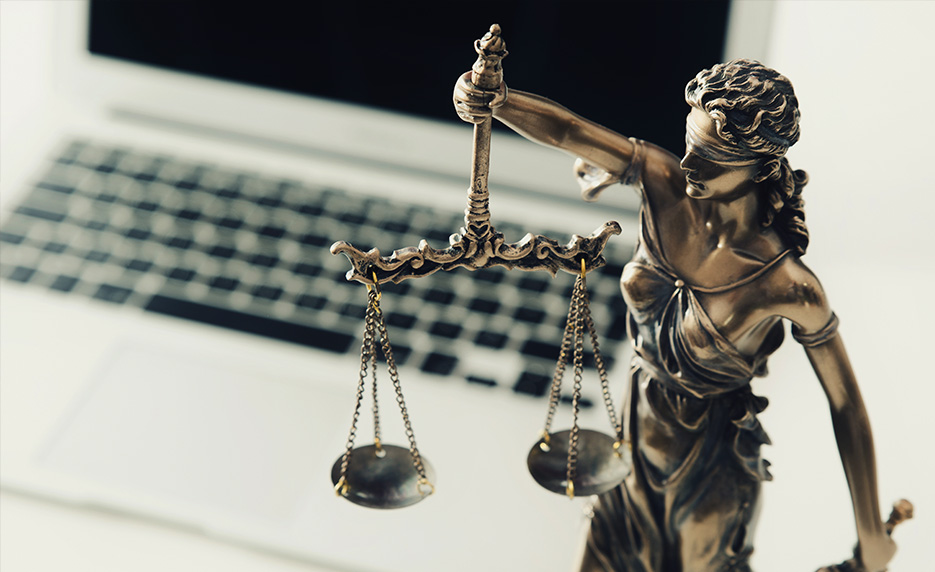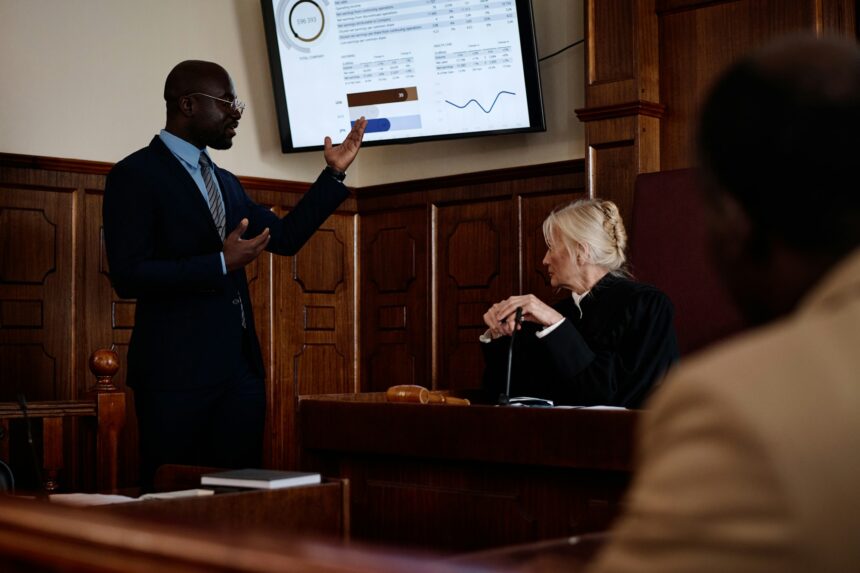Which Method Works Best for You? durham reporting Explained
Which Method Works Best for You? durham reporting Explained
Blog Article
Understanding How Court Reporting Works: A Key Part in the Justice System
Court reporting plays an important role in the lawful system. It ensures that all court process are documented properly. Court press reporters use customized tools and methods to produce verbatim transcripts. These records offer different purposes, including allures and legal quality. Understanding the ins and outs of court reporting reveals its value in maintaining the integrity of justice. What difficulties do stenotype reporter deal with in this progressing area?
The Function of Court Reporters in the Legal System
Stenotype reporter play an essential function in the lawful system, making sure accurate and trusted paperwork of courtroom procedures. They are in charge of recording every talked word throughout tests, hearings, and depositions, creating a verbatim records that offers as a permanent record. This documents is crucial for allures, providing a structure for greater courts to review cases.In addition to recording spoken language, stenotype reporter likewise promote communication between attorneys, courts, and various other celebrations involved in legal issues. Their work advertises transparency and liability within the judicial process.Utilizing specialized tools and software, court press reporters have to remain concentrated and conscientious, typically functioning under stress to fulfill limited deadlines. Their transcripts are not just necessary for legal recommendation yet also for maintaining the honesty of judicial process. Inevitably, stenotype reporter contribute considerably to the reasonable administration of justice, making sure that all voices are listened to and videotaped precisely.
Crucial Skills Required for Court Reporting
Court reporting demands an one-of-a-kind set of skills that are important for accuracy and efficiency. Mastery of stenography methods, strong listening and understanding capabilities, and precise interest to detail are necessary for success in this area. These skills allow court press reporters to create trustworthy records that act as crucial documents in the legal system.
Mastery of Stenography Techniques
While understanding stenography methods is crucial for aspiring court press reporters, it requires commitment and technique to establish the needed skills. Stenography entails utilizing a specialized key-board to record talked words in genuine time, making precision and speed important. Stenotype reporter must find out to make use of shorthand signs and establish muscular tissue memory to ensure reliable transcription. Constant experiment dictation workouts helps in improving typing speed, while familiarity with lawful terminology boosts comprehension during proceedings. In addition, comprehending the phonetic structure of the English language is considerable, as it assists in precisely recording discussion. Inevitably, proficiency in stenography not just facilitates efficient interaction within the courtroom however additionally upholds the stability of the lawful process.
Solid Paying Attention and Understanding
Reliable court reporting joints not only on stenography skills however likewise on solid listening and comprehension capabilities. Court reporters have to proactively pay attention to testimonies, lawful debates, and discussions, assuring they realize the subtleties of talked language. This skill facilitates accurate transcription of complicated legal process, where every word matters. Comprehension prolongs past surface-level understanding; press reporters should translate context, tone, and intent to record the essence of discussions precisely. Furthermore, they often experience specialized terms and lingo, needing quick adjustment and retention of info. The capacity to manufacture what is listened to while simultaneously transcribing is important, as it ensures the honesty of the authorities record. Consequently, solid listening and understanding are essential in delivering accurate and trustworthy court records.
Interest to Information
Focus to detail is a fundamental ability for court reporters, complementing their listening and comprehension capabilities. This accuracy ensures that every spoken word, inflection, and nuance is recorded properly in records. Stenotype reporter need to thoroughly keep in mind legal terms, names, and complicated dialogue to supply reputable records for lawful proceedings. A minor oversight can lead to considerable consequences, possibly impacting instance outcomes (durham reporting). Furthermore, court press reporters frequently work under pressure, requiring them to keep emphasis and precision in busy environments. Their focus to information not just enhances the honesty of the judicial procedure however additionally promotes trust fund among lawful professionals. Eventually, this ability is vital for producing transcripts that act as clear-cut records in litigation, assuring justice is upheld
The Modern Technology Behind Court Coverage
As court coverage advances, the modern technology utilized by experts in the area has become progressively sophisticated. Typical shorthand writing has mostly been supplemented by innovative digital devices that enhance rate and precision. Stenographic makers, equipped with specialized software application, permit stenotype reporter to record spoken words in real-time, equating them right into message immediately. This modern technology not only speeds up the transcription process but also lessens the potential for errors.Moreover, voice recognition software is becoming a valuable asset, making it possible for automated transcription from audio recordings. This development provides an alternative for developing transcripts when a human reporter may not be offered. Additionally, cloud-based storage space solutions facilitate very easy gain access to and sharing of transcripts among legal experts, making certain that essential details is conveniently available. As these innovations remain to breakthrough, they play an important duty in preserving the integrity and effectiveness of the justice system, eventually supporting the crucial job of court reporters.
The Process of Transcribing Legal Proceedings
The process of recording legal proceedings calls for a blend of skill and technology to ascertain accuracy and efficiency. Court press reporters use specific devices, such as stenographic machines, to capture talked words in real-time. This modern technology allows the press reporter to convert dialogue right into message, ensuring that every statement made during a test or hearing is documented.Once the session concludes, the first records go through modifying for clearness and comprehensibility. Press reporters may likewise incorporate audio recordings to cross-reference and confirm the precision of their transcriptions. This meticulous procedure guarantees that the last record mirrors an accurate account of the proceedings.Additionally, stenotype reporter read review have to preserve an extensive understanding of legal terms and court room treatments to successfully convert spoken language right into written form. Their competence not only aids in creating reliable records but likewise sustains the legal system by offering essential paperwork for appeals and future recommendations.
Making Certain Precision and Integrity in Court Records
Making sure precision and integrity in court documents is paramount for the judicial process. Court press reporters play an essential duty in capturing proceedings accurately, while advancements in technology improve their capability to maintain high requirements. In addition, promoting privacy criteria is essential to safeguard sensitive details within legal documents.
Duty of Court Reporters
Court press reporters play a vital function in the judicial system by capturing precise you could try this out and verbatim accounts of legal proceedings. Their key duty is to assure that every talked word is recorded exactly, giving a reputable document that can be referenced in charms and future cases. By utilizing customized devices and methods, stenotype reporter maintain the integrity of the court document, helping with transparency and accountability in the lawful process. They also help judges, lawyers, and other legal specialists by giving records that are essential for understanding case information and legal arguments - durham reporting. The accuracy of a court reporter's job straight affects the outcomes of cases, underscoring their considerable contribution to the quest of justice and the regulation of legislation
Technology in Coverage
Innovations in technology have actually significantly transformed the field of court reporting, boosting the accuracy and stability of court documents. Modern stenotype reporter utilize sophisticated devices such as stenographic makers and digital audio recording tools, assuring accurate transcription of talked words. These devices permit real-time transcription, which provides instant accessibility to court process and assists in timely decision-making. Additionally, software programs geared up with innovative formulas aid in determining and dealing with errors, even more strengthening the reliability of taped information. The integration of cloud storage services assures that documents are securely archived and easily retrievable, reducing the danger of loss or damages. On the whole, these technological innovations play a crucial function in keeping the top quality and reliability of court documents in the justice system.
Preserving Privacy Standards
An essential facet of court coverage is keeping privacy criteria, which are essential for ensuring the accuracy and integrity of court records. Stenotype reporter are left with delicate info, requiring strict adherence to ethical standards and legal arrangements. This confidentiality safeguards not only the privacy of the entailed parties but also the reputation of the judicial process. Reporters make use of protected methods for handling and saving transcripts, often utilizing encryption and limited access protocols. In addition, they need to navigate the complexities of various lawful frameworks that govern confidentiality in various jurisdictions. By supporting these criteria, court reporters add considerably to the dependability of court records, fostering trust in the justice system and ensuring that lawful proceedings can be performed with miraculous professionalism and trust and respect for personal privacy.
Different Kinds Of Court Reporting Services
While the lawful landscape proceeds to advance, the range of court coverage solutions offered has increased significantly to meet varied needs. Conventional court coverage stays necessary for catching verbatim records throughout trials and depositions. Additional solutions have arised, consisting of real-time reporting, which gives instant access to transcriptions as they are created, beneficial for lawyers and judges.Video court reporting has also acquired appeal, permitting for aesthetic documentation of witness statements, boosting the record with non-verbal cues. Remote court coverage has actually ended up being progressively relevant, offering virtual deposition solutions to suit geographical constraints.Lastly, some court press reporters specialize in captioning solutions for the hearing damaged, making sure access in legal process. This varied variety of court coverage solutions makes it possible for attorneys to choose one of the most suitable option for their certain scenarios, ultimately enhancing the performance and efficiency of the justice system.

The Future of Court Reporting in a Digital Age

As modern technology remains to improve the lawful area, the future of court check my site coverage is poised for considerable change. The combination of sophisticated tools such as expert system and real-time transcription software application is ending up being progressively prevalent. These innovations promise to streamline the reporting process, enabling faster and extra accurate paperwork of lawful proceedings.Moreover, the shift in the direction of remote hearings demanded by global events has sped up the fostering of electronic platforms, allowing court press reporters to function efficiently from different areas. This alteration likewise elevates inquiries regarding the preservation of traditional abilities, as the emphasis on technology could outweigh the nuanced art of shorthand reporting.Nonetheless, human court press reporters stay indispensable, supplying context, feeling, and proficiency that machines can not duplicate. As the legal landscape advances, a hybrid version that combines modern technology with human insight might define the future of court coverage, guaranteeing its importance in an electronic age.
Often Asked Inquiries

What Certifications Do Court Reporters Need to Function in the Field?
Stenotype reporter normally need a senior high school diploma, specialized training in court reporting, and qualification from relevant professional companies. Effectiveness in shorthand or voice writing and strong language skills are important for success in this area.
Just how Lengthy Does It Take to Become a Licensed Stenotype Reporter?
Becoming a certified stenotype reporter commonly needs two to four years of education and learning, including specialized training and technique. The duration varies based on individual development, the selected program, and the qualification process, affecting general conclusion time.
Can Court Reporters Job From Another Location or Just In-Person?
Court press reporters can function both from another location and in-person, relying on the needs of an instance. Advancements in innovation have actually enabled many to provide services through video clip conferencing, permitting adaptability in their workplace.
What Is the Average Wage for a Court Press reporter?
The typical wage for a stenotype reporter varies by place and experience, typically varying from $50,000 to $80,000 annually. Aspects such as specialization and demand can greatly affect individual revenues within the career.
How Do Stenotype Reporter Handle Legal Lingo During Process?

Report this page